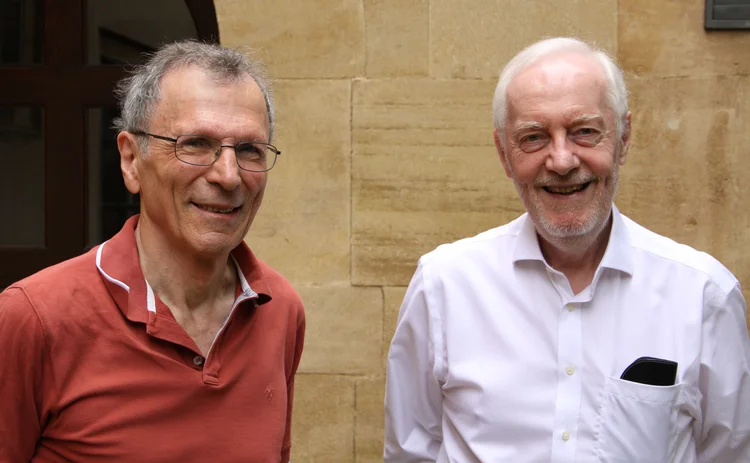
Podcast: David Hendry and John Muellbauer on empirical macro
The econometricians cast a sceptical eye over DSGE models and weigh up some alternatives

Models need to be much more adaptable if they are to reflect the real world in a meaningful way, David Hendry and John Muellbauer say.
Both are professors of economics at the University of Oxford, and both specialise in econometrics. They are also highly sceptical of the use of rigid, structural models, such as the dynamic stochastic general equilibrium (DSGE) models widely used by central banks.
“Before the global financial crisis, macro[economics] was in a really terrible state, because the macro models central banks were using left out the most important things, namely credit, asset prices, housing – all those things that really mattered,” says Muellbauer.
Hendry and Muellbauer sat down with Central Banking for the second episode of the Rewiring Macro series.
They believe economic modelling needs to account for the constant shifts of the economy – which is not achievable with rigid models such as DSGE, which list equilibrium among many assumptions. In reality, economies are “highly non-stationary”, says Hendry – that is, they may constantly move towards equilibrium, but are knocked off course by one shock after another.
“We need models that are much more adaptable if we’re going to have a macroeconomy that matches reality to any great extent,” says Hendry.
Muellbauer allows that heterogeneous-agent DSGE models might be useful for thinking about theoretical questions, but he cautions against using them to set policy. “Policy models need to be much more embedded in time series data that takes full account of the rich structure of the economy… To get a tractable, useful policy model, the DSGE approach is just not going to help you,” he says.
Like David Vines, who discussed the need to reform DSGE models in the first episode, Hendry and Muellbauer see potential in agent-based modelling. Future episodes will explore these ideas in more depth.
Index
01.00 – Have macroeconomists gone astray somewhere?
04.16 – Historical background
09.25 – Adapting DSGE models
14.50 – Empirical alternatives
25.50 – Agent-based modelling
30.50 – Teaching models to undergraduates
To hear the full interview, listen in the player above, or download. Future podcasts in our CB On Air: Rewiring Macro series will be uploaded to centalbanking.com.
Only users who have a paid subscription or are part of a corporate subscription are able to print or copy content.
To access these options, along with all other subscription benefits, please contact info@centralbanking.com or view our subscription options here: http://subscriptions.centralbanking.com/subscribe
You are currently unable to print this content. Please contact info@centralbanking.com to find out more.
You are currently unable to copy this content. Please contact info@centralbanking.com to find out more.
Copyright Infopro Digital Limited. All rights reserved.
As outlined in our terms and conditions, https://www.infopro-digital.com/terms-and-conditions/subscriptions/ (point 2.4), printing is limited to a single copy.
If you would like to purchase additional rights please email info@centralbanking.com
Copyright Infopro Digital Limited. All rights reserved.
You may share this content using our article tools. As outlined in our terms and conditions, https://www.infopro-digital.com/terms-and-conditions/subscriptions/ (clause 2.4), an Authorised User may only make one copy of the materials for their own personal use. You must also comply with the restrictions in clause 2.5.
If you would like to purchase additional rights please email info@centralbanking.com








